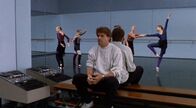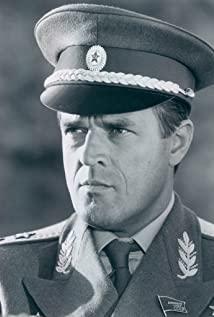Rudy Fontaine's obsession has nothing to do with ruthlessness. After going through most of his life journey, the picture he can never forget is still the encounter in his childhood.
The officer drove him home as usual, looked him in the eyes, was very serious, and said a word. He still didn't understand. I thought it was my usual self-talk. It wasn't until the next day that he realized that it was the officer's farewell in the comments of others.
The regrets caused by language barriers are lifelong. A relationship that came to an abrupt end made the future Rudy mired in memory.
I love the beauty of this, because of the beauty of absence.
We must admit that Rudy's war complex rests more on those deeply staring eyes.
It is said that this is a love that transcends war, language, age, country, and sexual orientation. I say that this kind of love is born only in response to the emotional needs of the little boy. He even just love.
The panic brought about by the war, the instability brought about by being thousands of miles away from home, and the quiet temptation of pheromones, what he needed was an emotional sustenance. When two people who meet the needs of each other look at each other, it is probably the love that everyone talks about, and it is also the driving force that Rudy is still very moved after decades.
I can enjoy a film like this without watching gay gimmicks. I pay attention to how a middle-aged man is immersed in his childhood memories, what kind of shattering his memory has suffered, the warmth of who he has met, and what kind of stares he has missed. This is more inclined to detail character development. Of course, I didn't forget to hypnotize myself into Rudy's memory, meeting warmth in the war-torn era. He doesn't even need a perfect ending to be romantic.
Movies adapted from novels are often criticized a lot, because of the magical illusion brought by the language, we are disappointed with the processing of the lens language, the emotional direction, and even the editing. I'm not surprised by such a disappointment, because this is the positive pain that Schopenhauer taught me. Because you think the world is too good first, and lead to later disappointment.
View more about For a Lost Soldier reviews








